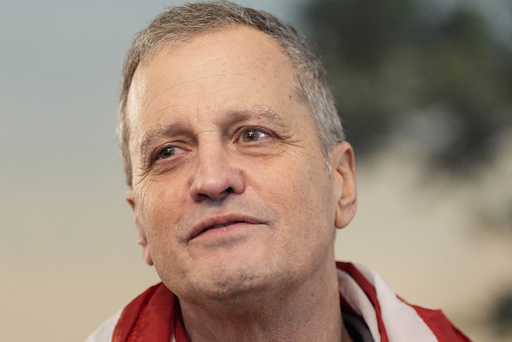
MOSCOW — On Wednesday, the Kremlin announced that a Russian national was released in the U.S. as part of a deal in which Moscow freed American Marc Fogel. However, officials did not disclose the name of the Russian individual until his safe return to Russia.
Kremlin spokesperson Dmitry Peskov informed the media that the unnamed citizen would be back in Russia “within the next few days,” highlighting that this exchange was different from previous swaps, where both parties released their national simultaneously and identified them right away.
Peskov stated, “Recently, the relevant agencies have intensified their efforts, leading to contacts that facilitated the release of Fogel as well as a citizen of the Russian Federation held in the United States. This citizen will likewise return to Russia soon.”
When pressed by reporters about whether the released Russian could be Alexander Vinnik, Peskov reiterated that the individual’s identity would only be revealed once he arrives back in Russia. Vinnik was arrested in Greece back in 2017 on U.S. charges related to cryptocurrency fraud and was later extradited to the U.S., where he pleaded guilty in the previous year to charges of conspiracy to commit money laundering.
Russian Foreign Minister Sergey Lavrov was cautious when asked about the details of the arrangement that led to Fogel’s release. He emphasized the importance of confidentiality in diplomatic engagements and expressed concerns over Washington’s quick announcement regarding Fogel’s release. “Our American colleagues elected to disclose the outcomes, while we prefer to maintain discretion in our agreements,” Lavrov remarked. “Efficient diplomacy thrives on confidentiality.”
Fogel, an American history teacher characterized as wrongfully detained by Russia, was returned to the U.S. on Tuesday, an event that the White House classified as a possible thaw in diplomatic relations that might aid negotiations related to the conflict in Ukraine. Fogel had been arrested in August 2021 and was serving a sentence of 14 years.
Special envoy Steve Witkoff, who worked under former President Donald Trump, accompanied Fogel back to the U.S., where he was welcomed at the White House. Fogel, originally from Pennsylvania, was looking forward to reuniting with his family.
Trump did not disclose whether he had a conversation with Russian President Vladimir Putin about Fogel’s situation, nor did he indicate what the U.S. might have provided in return for the American’s release.
In comments made at the White House, Trump suggested that Fogel’s release could pave the way for a peace agreement concerning Ukraine. He stated, “We were treated very nicely by Russia, actually. I hope that this is the onset of a relationship that can help us to conclude that war.”
The Kremlin responded cautiously to this suggestion, acknowledging the potential for the agreement to foster a degree of mutual trust, while stating, “While such agreements may not serve as a turning point, they represent small steps toward fostering confidence, which is at an all-time low.”

